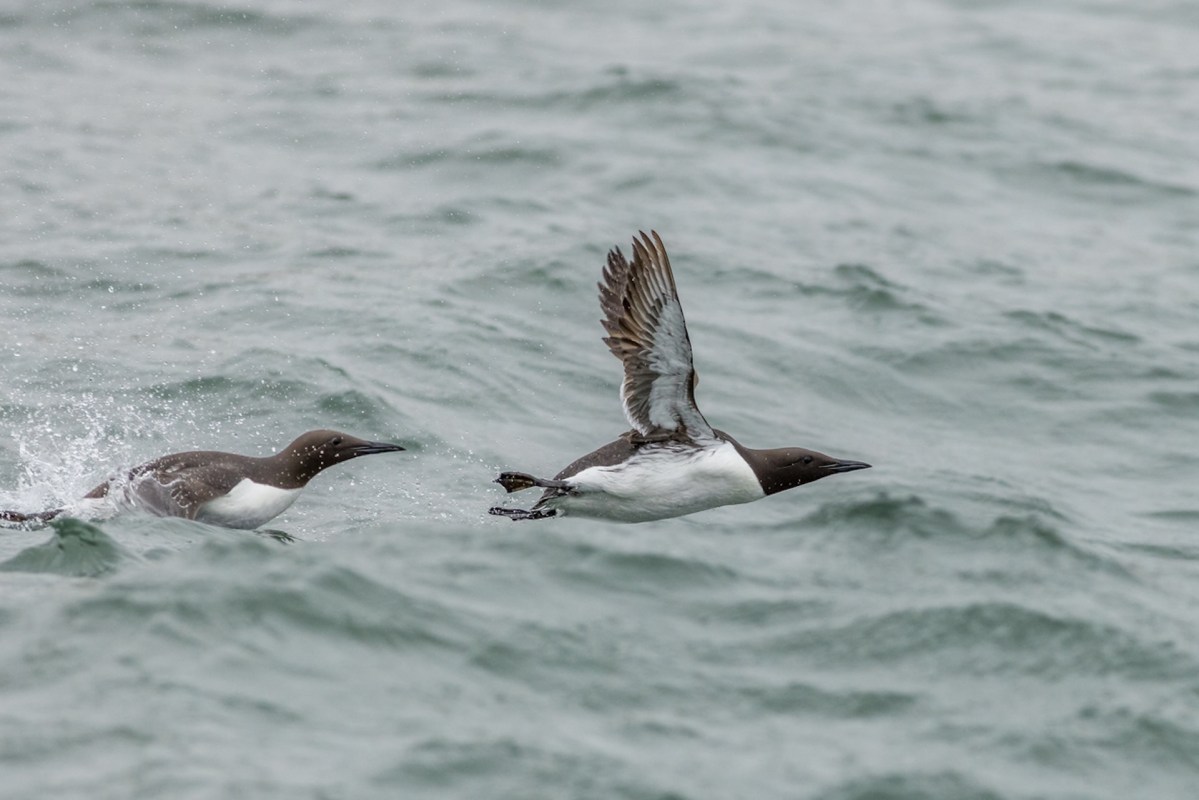Researchers discovered hundreds of dead guillemot seabirds washed up along the French Atlantic coast.
While the exact reason is unknown, they believe exhaustion from battling brutal winter storms at sea made it difficult for the birds to find food, leading to their deaths, as Reuters reports.
What happened?
According to Reuters, the French League for the Protection of Birds (LPO) estimated that scientists have found more than 500 dead common guillemots — seabirds similar to puffins and penguins — on French Atlantic beaches since the beginning of 2024.
Antoine Prevel, a volunteer for the nonprofit marine conservation organization Sea Shepherd France, said finding stranded guillemots on the beaches isn't uncommon in winter. Still, the number of birds found dead in the last several weeks is highly unusual.
"We patrol these beaches every day of the week, and we find guillemots nearly every day," he told Reuters in a video clip.
Researchers said the birds likely perished from exhaustion and possibly starvation if they hadn't eaten in several days because of the rough seas.
"Climate change is an indirect cause, as it increases the frequency and intensity of storms, particularly winter storms, which are the main reason for massive strandings of seabirds," Jérôme Fort, a scientist from France's National Center for Scientific Research, told Reuters.
"In storms like we have seen recently, these birds find it hard to feed properly and will die of exhaustion," Fort said.
Fort added that microplastic poisoning and chemical contamination could have also harmed the birds and contributed to the mass beachings. Another possible explanation for the phenomenon is a lack of food since many fish are moving closer to shore because of overfishing and the changing climate.
Why are the mass guillemot beachings concerning?
While common guillemots, also called common murres, are considered a species of relatively low conservation concern, the rapidly changing climate and warming ocean temperatures are putting pressure on the birds, per All About Birds. This will impact the food web and the prey animals they feed on, threatening their survival.
Oceana reports that a 2014-2016 heat wave in the Pacific Ocean called "the Blob" led to approximately 62,000 dead or dying murres washing up on U.S. West Coast beaches, of which common murres made up an estimated 10-20%.
"If you see a seabird on land, odds are it means they're extremely unwell, and that has nothing to do with a windstorm. It has everything to do with the fact that the oceans are too warm," Dr. Jennifer Lavers, a scientist who studied a mass mortality event of short-tailed shearwaters in Australia, told news.com.au.
Since around 14 million tons of plastic enter the oceans each year, according to the International Union for Conservation of Nature, the birds face growing risks of ingesting, suffocating, or getting entangled in plastic waste as well.
What can be done to protect guillemots?
Several organizations are stepping up to help protect the oceans and marine ecosystems. For example, in 2017, Oceana won protections for 140,000 square miles of vulnerable seafloor ecosystems off the U.S. West Coast, which protected hundreds of schooling fish species that seabirds like guillemots feed on.
On a smaller scale, we can reduce our plastic consumption by switching to reusable water bottles or recycling our plastic correctly, which will help clean up our oceans.
To limit the warming of the oceans, we can minimize the pollution we generate by installing solar panels, weatherizing our homes, and switching to induction stoves from gas-powered ones.
Join our free newsletter for cool news and cool tips that make it easy to help yourself while helping the planet.








